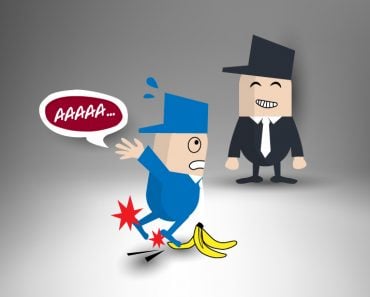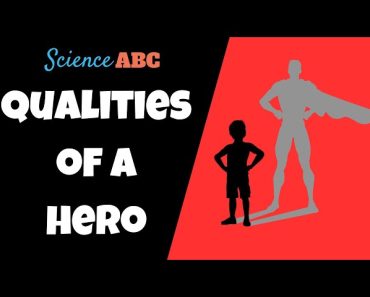Dark Humor is a genre of humor that is characterized by its dark or morbid content. Dark humor is not for everyone and can be seen as offensive by some. The term “dark humor” is used to describe a wide range of jokes, including those that deal with topics like death, violence, and suffering.
The spectrum of humor ranges from the old, unimaginative, dry, banana peel slip to Modern Family or Arrested Development’s exquisitely timed and beautifully crafted wordplay, but some people resort to something darker and laugh at what are called “morbid jokes.” This genre of humor is called Dark Humor. Dark humor isn’t everyone’s cup of tea. The perception of humor or anything you find amusing is so subjective, so individualistic that we have been unable to write down a formula or generalize a rule and point at something to say, “This is objectively funny”.
Evolutionists and anthropologists have long been perplexed by humor’s role in developing the underpinnings of language and thought, as well as the neuroscience of social perception. However, it seems strange to think that periodically exhaling air and blurting out a series of “Haha’s” has anything to do with surviving in an African savanna. So what is the evolutionary purpose of comedy?
Plato and Hobbes believed that comedy could only be derived at the expense of someone else’s misfortune or to help us feel superior to others. This is known as the Superiority Theory. Kant thought it provided a cognitive shift that catalyzed a transition from tragedy to jollity. Although he was correct, Kant failed to provide a scientific reason as to why or how this transition occurred. Peter McGraw, a behavioral scientist, along with Caleb Warren, recently published a paper depicting the purpose of humor and why we laugh.

According to their “Benign violation theory,” a good joke, surprisingly, is a threat characterized by a wicked twist and good timing, which reveals itself to be empty. McGraw believes that jokes are funny because they violate your beliefs, but turn out to be something insignificant. The violation, as the name implies, must be benign, but enough to hit a sweet spot. Too lighthearted and you risk being toothless, too offensive and you make your audience uncomfortable.
The theory is backed by the claim that cavemen were constantly surrounded by physical threats, so finding a frog behind rustling bushes – rather than a tiger – was a huge relief. Former theories failed to account for many activities, such as tickling, but McGraw’s theory attempts to explain everything that makes you laugh. According to him, tickling is a physical threat encountered suddenly, but it makes you burst out laughing because it is done by someone you trust.
It seems that laughter signals this form of relief. Comedians exploit this peculiarity and threaten us, but introduce a twist that annuls the awful, making it silly and delivering relief. Violation, in this case, would mean challenging one’s ethical beliefs and making a statement that unsettles your moral compass. Moral compasses are formed throughout childhood and point towards a set of ideas – sometimes deeply rooted in superstition – that make us feel at home.
Dark humor often forces its listeners to consider new perspectives, but novelty isn’t something that comes easily to us. These might be ideas to which you are not accustomed, or even worse, they might be upsetting and make your compass stutter. However, what might be threatening to you might not be threatening to someone else… so what makes a joke threatening?

Distance determines the extent of violation. Tragedies seem to be tragic depending on how physically far away they occur, whereas mishaps seem to be funnier when they are physically closer. The brain also processes distance psychologically in terms of time. Comedian Gilbert Gottfried was publicly hissed at for joking that he was taking a flight that would make a stop at the Empire State Building just after 9/11 occurred. Jokes about such tragedies can be deemed “too soon? when made just after the tragedy occurs.
For instance, however unethical, people find Holocaust jokes funny, not only due to their faraway physical distance, but also due to their temporal distance, in other words, due to how much time has occurred since the Holocaust. Other than temporal distance, a violation can seem more distant if the butt of a joke is someone else; this is called social distance. Or, the violation is in the form of hypothetical or imagined scenarios, such as in Looney Tunes, when a character falls off a cliff. This is funny because we know it?s not real.
Moreover, cartoon characters rarely die or sustain horrific permanent injuries after falling, which provides us with some psychological relief. This is the Relief Theory, which was put forward by Freud. An implication of Relief Theory is that humor acts as a coping mechanism, so it might be a sign of good health to laugh in the face of adversity. Freud said that the “ego insists that it cannot be affected by the traumas of the external world.” This is evident in hospitals where doctors are regularly found to indulge in offensive humor, which might be correlated to the horrors they witness in their everyday routine, as well as during wars, where soldiers casually joke about amputation and death.
Mark Twain rightly said “Comedy is tragedy plus time”, but what makes soldiers laugh at their own death or people giggle at Louis C.K’s shady jokes doesn’t necessarily come down to the perfect match of the right degree of violation and the right amount of distance, but also people’s increased insensitivity to violations. Comedy is equal parts darkness and light, and a graph depicting the probability of what people might find offensive would be a simple bell curve with tragedies at its peak. Yet, on an individual level, our varied sensitivities might be a result of our nature and nurture, irrespective of distances.
Culture is also very significant and different cultures have different views on humor. It is judged by either content and subject matter or its time and place. For instance, jokes are a strict no-no at workplaces in Japan, but they are acceptable in bars, while sexist jokes are more prevalent in Saudi Arabia than certain European countries. Open-minded people are usually well read and open to new ideas, which makes falsifying taboo or decreasing your circle of violation much easier. However, that doesn’t mean every sensitive issue can or should be joked about; the line separating good and ugly is pretty thin, and one should only tell them if they’re really good.
Recommended Video for you:













